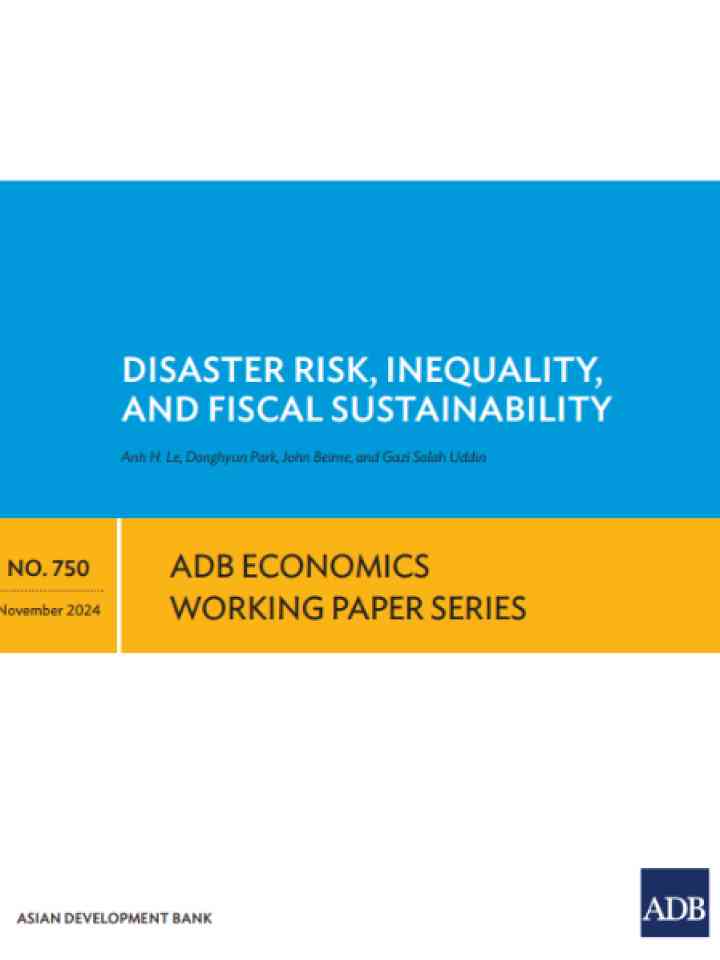Disaster risk, inequality, and fiscal sustainability
This study looks into the implications of climate change on fiscal sustainability and inequality. First, using rich panel data, the authors show that rising climate-related disaster risks increase government debt and harm fiscal sustainability. The study also finds that the adverse effect of disaster risks is larger for low-income households, exacerbating inequality. Second, the authors construct a New Keynesian Dynamic Stochastic General Equilibrium (NK-DSGE) model to examine the implications of the distributional effect of disaster risk.
The model features two kinds of households and a fiscal authority. The study shows that disaster risk has recessionary effects and also causes inequality among households to widen. More specifically, the model indicates that “hand-to-mouth” agents suffer a drop in consumption that is three times larger than that of the Ricardian households. Importantly, the researchers observe a significant rise in sovereign debt due to disaster risk, which poses a challenge to policymakers. Lastly, targeted transfers are recommended but progressive taxes entail a significant fiscal cost.
Explore further
